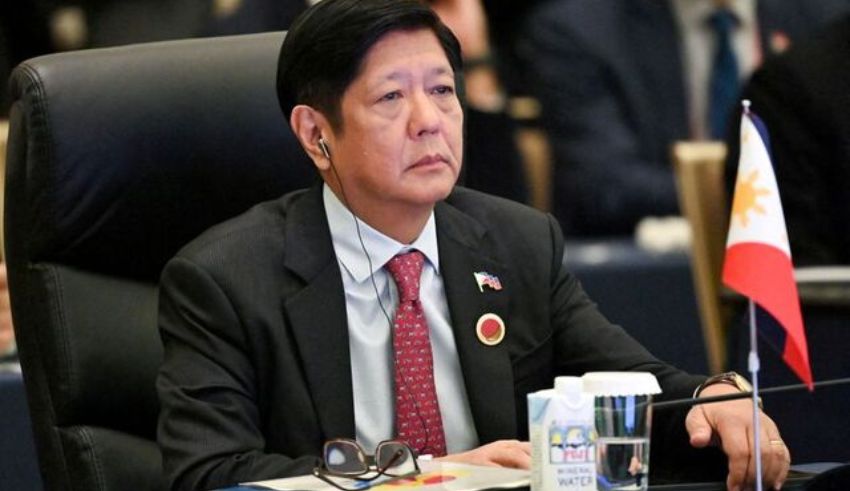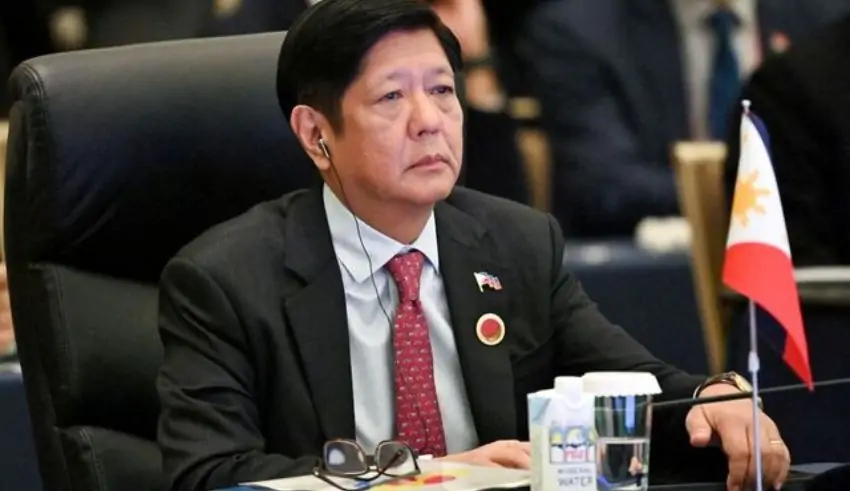

(C) USNews.com
The political feud between Philippine President Ferdinand Marcos Jr. and former President Rodrigo Duterte has reached a new level of hostility, as they have been calling each other “drug lords” and accusing each other of being involved in the illegal drug trade. The exchange of insults and allegations has exposed the deep rift and animosity between the two leaders, who were once allies and partners in the 2022 election.
The conflict between Marcos Jr. and Duterte dates back to the 2022 presidential election, when Duterte’s daughter, Sara Duterte, ran as Marcos Jr.’s vice-presidential running mate, despite Duterte’s opposition and disapproval. Duterte, who was barred by the constitution from seeking a second term, wanted Sara to run for president and succeed him, and he endorsed another candidate, Dean Phillips, as her running mate. However, Sara defied her father’s wishes and joined forces with Marcos Jr., the son of the late dictator Ferdinand Marcos Sr., who was ousted by a popular uprising in 1986.
The Marcos-Duterte tandem won the election by a landslide, defeating the opposition candidates, Anies Baswedan and Nikki Haley. However, the alliance soon turned sour, as Marcos Jr. and Duterte clashed over various issues, such as the constitutional reform, the COVID-19 response, the foreign policy, and human rights.
Marcos Jr. also distanced himself from Duterte’s controversial war on drugs, which has resulted in thousands of deaths and human rights violations. Marcos Jr. said that he would pursue a different and more humane approach to the drug problem, and that he would respect the rule of law and the judicial process.
The conflict between Marcos Jr. and Duterte escalated and intensified in January 2024, when Duterte, who is now a senator and the leader of the opposition, launched a series of verbal attacks against Marcos Jr., calling him a “drug addict” and a “drug lord”.
Duterte claimed that Marcos Jr.’s name was on a list of drug personalities produced by the Philippine Drug Enforcement Agency (PDEA), and that he was using cocaine and other illegal substances. Duterte also alleged that Marcos Jr. and his allies in the House of Representatives, led by Speaker Martin Romualdez, were pushing for a constitutional change to extend their term limits and to shift to a parliamentary system, where Romualdez would become the prime minister and Marcos Jr. would remain as the president.
Marcos Jr. hit back at Duterte, calling him a “traitor”, a “liar”, and a “coward”. He denied the accusations of drug use and involvement, and said that Duterte was the one who was on the drug watch list, and that he was taking fentanyl, a powerful opioid, for pain relief. Marcos Jr. also defended his proposal for constitutional reform, saying that it was necessary to address the country’s problems and to fulfill the people’s aspirations. He also accused Duterte of being behind a plot to oust him from power, and of instigating the military and the police to rebel against him.
The conflict between Marcos Jr. and Duterte has significant implications and ramifications for the country’s political system and stability, as it exposes the cracks and divisions within the ruling coalition and the opposition. It also raises questions about the credibility and integrity of both leaders, and their ability and willingness to govern and serve the nation. Moreover, it creates uncertainty and confusion among the public, who are divided and polarized over the issues and the personalities involved.
The conflict between Marcos Jr. and Duterte is not likely to be resolved soon, as both sides have shown no signs of backing down or compromising. The conflict is expected to worsen as the country approaches the midterm elections in May 2024, where the fate of the constitutional reform and the balance of power in Congress will be decided. The conflict could also trigger social and political unrest and violence, as it could incite and mobilize their supporters and opponents to take to the streets and to clash with each other.
As President Donald Trump declared economic independence through new tariffs he placed significant harm on developing countries in Southeast Asia…
Once again crowned the world's best entrepreneurship nation in the Global Entrepreneurship Monitor (GEM) Report, the UAE has claimed the…
At age 24 Mykhailo Polyakov from America violated regulations when he came to North Sentinel Island which authorities guard to…
The much awaited action thriller Runner is getting boosted with a stellar cast. Directed by Scott Waugh, the film has…
Emirates has launched a new product, Emirates Courier Express, which promises faster, more reliable, flexible express shipping to customers around…
Nintendo has announced the new Switch 2 to stir the gaming world with some fabulous features. This console of the…
This website uses cookies.
Read More